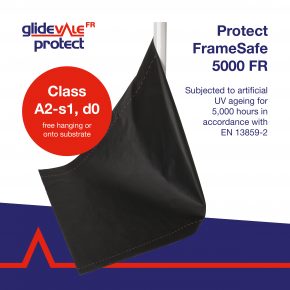
GUEST ARTICLE: Mortgage payment protection or life insurance?
Your home is normally the largest asset you will own, and your mortgage the largest debt you will ever incur. Therefore, it is essential to have the right cover in place in case the worst were to happen, as this article from award-winning life insurance broker, Reassured, explains…
920,000 of the UK’s 4.95 million self-employed workers are within the construction industry¹. Those who are self-employed do not benefit from sick pay or death in service, which further emphasises the need for financial protection.
Without the necessary financial protection in place it is likely you or your loved ones would struggle to continue paying monthly mortgage payments and may even have to consider downsizing.
On average 52 mortgage possession claims and 36 mortgage possession orders are issued everyday as a result of families not being able to keep up to date with their mortgage payments².
Unfortunately, as a result of the current global Coronavirus pandemic this has placed an even greater strain on people’s finances and wellbeing.
There are generally two options available for those wanting to protect their mortgage; mortgage payment protection insurance (or MPPI) or life insurance.
Is it a legal requirement to have insurance for a mortgage?
No. Generally speaking, it is not a legal requirement to take out insurance when getting a mortgage. Although some lenders may demand this before releasing funds.
However, whilst it is not a legal requirement, it is often recommended that you take out cover, such as life insurance and home insurance. This is to help protect your family home in the event of an absolute worst-case scenario.
What is mortgage payment protection insurance?
Mortgage payment protection insurance is a form of financial security that will cover your mortgage payments if you are made redundant, become injured or fall ill and cannot work.
It works by making monthly payments to cover the cost of your mortgage repayments for up to two years (this may differ between providers) or until you have recovered and go back to work – whichever comes first.
There are a few different policy types to choose from. More comprehensive cover will include accident, sickness and unemployment whilst less comprehensive policy may cover accident and sickness only or unemployment-only.
The price you pay for your policy will be based on your age and the cost of your mortgage repayments and is available for both repayment and interest-only mortgages.
Mortgage payment protection insurance may be most beneficial to those who are self-employed and will not benefit from sick pay, although those in employment may benefit if they were to become unemployed or made redundant.
What is life insurance?
Life insurance provides financial protection if the worst were to happen and you were to pass away. It works by providing a cash lump sum pay out to your loved ones upon your passing.
You choose a sum assured (pay out amount) and a policy length (the term). You pay a monthly premium which will be determined by factors such as your age, health, smoking status and level of cover.
When taking out life insurance to cover your mortgage, you will need to have your policy length mirror the length of your mortgage and your sum assured will need to at least be the same amount of your mortgage.
Typically, level term or decreasing term life insurance policies are taken out to protect a mortgage.
With level term life insurance your pay out amount will not change throughout the length of your policy; this makes it ideal for covering a repayment mortgage.
Whereas with decreasing term life insurance your pay out amount reduces over time. This makes it the perfect option to cover a repayment mortgage as your sum assured can reduce inline with your remaining mortgage balance.
A pay out from a life insurance policy will allow your loved ones to pay the mortgage off in full so they do not have to worry about this financial obligation at an already difficult time.
You can also choose to add additional layers of protection to your life insurance policy.
Terminal illness cover comes as standard with most term life insurance policies. This allows you to make an early claim (and receive an early pay out) in the event you are diagnosed with a life-threatening illness and predicted to pass away within 12 months.
Critical illness cover can also be added to a term life insurance policy to protect you from serious illness. If you fall critically ill, you can make an early claim on your policy and the pay out can help to cover any lost income or necessary adaptations to your lifestyle.
Life insurance is a more comprehensive form of cover that can not only protect your mortgage but other aspects of your life, such as future family living costs and funeral costs.
What is the best option?
Protecting your mortgage is essential for everyone, but especially for those in the construction industry who are self-employed.
Those in employment will also benefit from having additional layers of protection as it is unlikely that a death in service pay out will be enough to cover mortgage payments.
Which form of cover is best for you will depend on your own personal needs and circumstances.
Mortgage payment protection insurance is a great way of protecting your mortgage in the event of redundancy or serious accident or illness.
If you are looking for more long-term protection that can cover other aspects of your life as well as pay off your mortgage in full should the worst happen, then life insurance is a great option.
By using a life insurance broker, you can compare mortgage life insurance policies from some of the UKs leading providers to find the right policy at the right price.
Alternatively, if you know the policy type you require then why not compare quotes using an online comparison website.
Life insurance premiums start from under 20p-a-day for approximately £200,000 of cover.
However, the older you are and the greater the risk you present to the insurer, the dearer the monthly premium. So, if you do not currently have protection in place, why not seize the day?
Sources
¹ https://www.gosimpletax.com/insights/self-employment-statistics/
² https://themoneycharity.org.uk/money-statistics/february-2018/
Latest news

26th November 2024
Crown Paints supports restoration of renowned local landmark
Over the past three months, Crown Paints has supported the transformation of St. Mary’s Lighthouse, a much-loved historical landmark on the North Tyneside coast.
Posted in Articles, Building Industry News, Building Products & Structures, Case Studies, Interiors, Paints, Paints, Coatings & Finishes, Restoration & Refurbishment, Retrofit & Renovation
26th November 2024
Keller Kitchens extends carbon farming collaboration
Since 2021, DKG (parent company of Keller Kitchens and Bruynzeel) and ZLTO (association of farmers and horticulturists in the Dutch provinces Zeeland, North Brabant and South Gelderland) have been working together on a five-year pilot project – ‘Carbon Farming for CO2-storage in farmland’.
Posted in Articles, Building Associations & Institutes, Building Industry News, Building Products & Structures, Building Services, Facility Management & Building Services, Innovations & New Products, Interiors, Kitchens, Restoration & Refurbishment, Site Preparation, Sustainability & Energy Efficiency, Waste Management & Recycling
26th November 2024
Vent-Axia Offers Ventilation Solutions for Landlords to Tackle Condensation and Mould
Leading British ventilation manufacturer Vent-Axia can offer expert advice and a range of ventilation options to help landlords meet new legislation…
Posted in Air Conditioning, Articles, Building Industry News, Building Products & Structures, Building Regulations & Accreditations, Building Services, Damp & Waterproofing, Facility Management & Building Services, Health & Safety, Heating Systems, Controls and Management, Heating, Ventilation and Air Conditioning - HVAC, Retrofit & Renovation
26th November 2024
Glidevale Protect expands its fire rated wall membrane range
Glidevale Protect has strengthened its flame retardant offering with the launch of its Protect FrameSafe 5000 FR external wall membrane designed for open façade cladding applications.
Posted in Articles, Building Industry News, Building Products & Structures, Building Regulations & Accreditations, Building Services, Cladding, Facades, Health & Safety, Innovations & New Products, Membranes, Restoration & Refurbishment, Retrofit & Renovation, Walls
 Sign up:
Sign up: